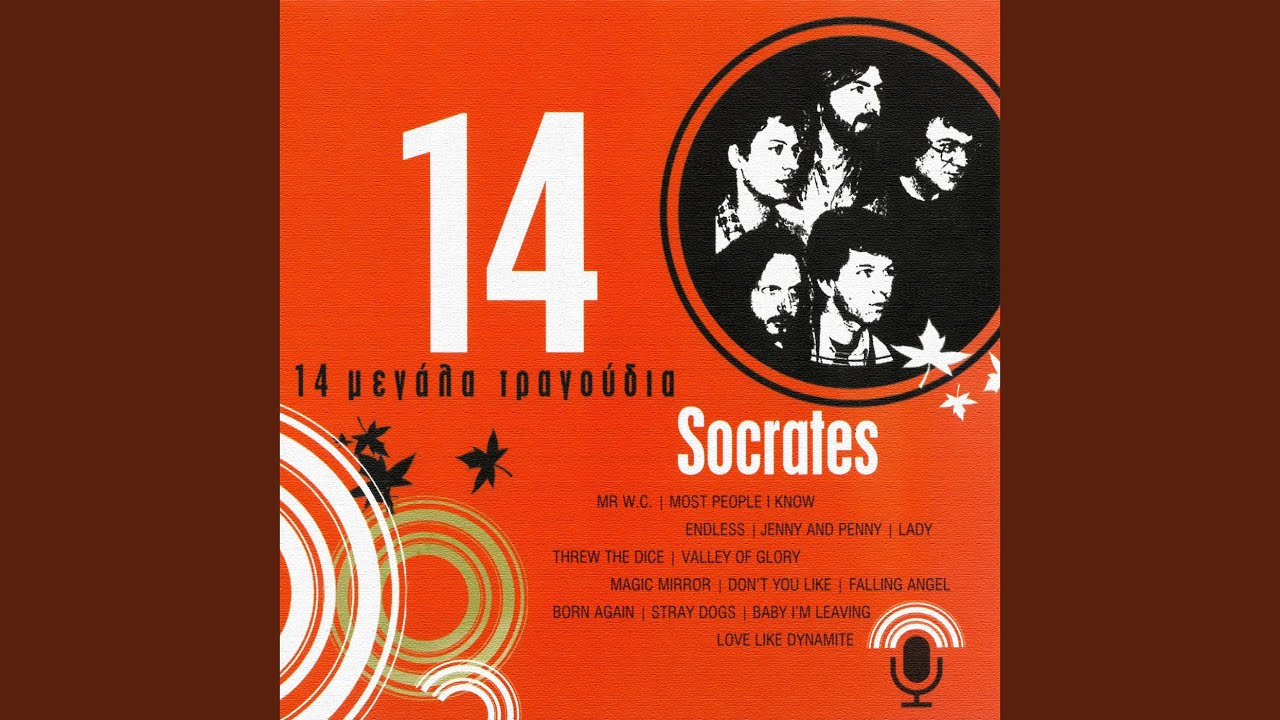SOCRATES DRANK THE CONIUM - A GREEK ROCK LEGEND

SOCRATES DRANK THE CONIUM - A GREEK ROCK LEGEND
Hello ladies and gentlemen, and welcome to another article. Today’s idea came to me while listening to ''Plaza'' by Socrates Drank the Conium after many years and I have to say, I got completely hooked on this album. I had listened to it a long time ago and, honestly, didn’t like it at all… hahaha. Funny how that happens sometimes, right? Haven’t you ever listened to an album and felt absolutely nothing-or even felt repulsed by it? I’m sure we’ve all had that experience. So, here I am, listening to ''Plaza'' (1983) again, and I can honestly say it’s becoming one of my favorite albums! Of course, it doesn’t quite reach the heights of their earlier work (especially ''Phos'' what an epic record that is!! What more can I say??). So I thought I’d write a few words about Socrates Drank the Conium. Not that you’ll necessarily learn something new!! The band’s story has already been told countless times over the years, but let’s take a trip back in time and revisit this historic band.
Socrates Drank the Conium, or simply Socrates, were one of the most important and influential rock bands in the history of Greek music (and not only in Greece!). With a sound that blended blues, hard rock, and progressive elements, and with a rare level of technical skill (especially according to the Greek standards at the time), they managed not only to stand out in the domestic scene but also attract interest from abroad-at a time when that was incredibly difficult.
The band was born in Piraeus in the 1960s, founded by two friends and classmates: guitarist Yannis Spathas and bassist/singer Antonis Tourkogiorgis (In reality his main instrument was the guitar). They started with a band called The Persons, one of the first rock bands in the city. The original lineup was: Ilias Asvestopoulos (vocals), Yannis Spathas (guitar), Antonis Pitsolantis (bass), and Ilias Boukouvalas (drums). Shortly afterwards, Antonis Tourkogiorgis joined the group. They were all still in high school at the time. They released three 7’’ singles:
Drive My Mustang / All the World Is Mine (1966)
John's Flight / Young Girl (1968)
Είσαι το Κορίτσι Π’ Αγαπώ / Μόνο Μια Φορά (1969)
When Asvestopoulos and Pitsolantis left in 1969 to fulfill their military service, the band came to an end. Spathas, Boukouvalas, and Tourkogiorgis moved forward and formed Socrates Drank the Conium - a name inspired by philosophy and the poison that Socrates drank, symbolizing an alternative and rebellious spirit.
Their early records were heavily influenced by blues and hard rock, with nods to artists like Hendrix, Cream, and Led Zeppelin. What made their sound stand out was its energy, improvisation, and Spathas’ powerful guitar work. In 1971, they released their self-titled debut album ''Socrates Drank the Conium'' and immediately impressed. Raw, direct, and full of energy, the album blended blues and hard rock with psychedelic flourishes. It wasn’t technically perfect, but it was genuine. It captured the essence of Greek rock at the time: spontaneous and experimental. One of the strongest Greek rock albums ever.
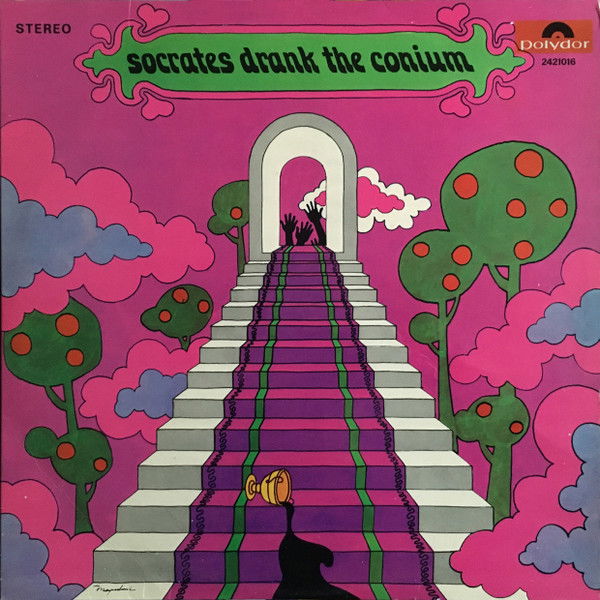
Their next release was ''Taste of Conium'' (1972), featuring the iconic 13-minute "Wild Satisfaction" - a unique take on the Rolling Stones classic, reimagined completely. While the album wasn’t as cohesive as their debut, it showed their desire to evolve and shape a distinctive sound. Somewhat inconsistent, but with standout moments.
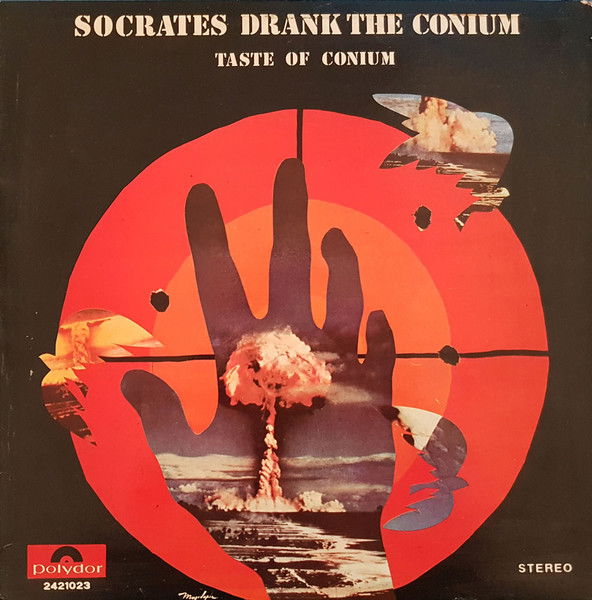
In 1973 came their third album, ''On the Wings'', where the band grew heavier and more serious. The guitar work became more aggressive, the songwriting tighter, and the style leaned toward European progressive hard rock. Possibly their most “solid” album up to that point-less original, perhaps, but full of power and direction. Notably, the band expanded from a trio to a quartet (though this lineup wouldn’t last long), adding guitarist Kostas Doukakis and replacing drummer Ilias Boukouvalas with George Trandalidis.
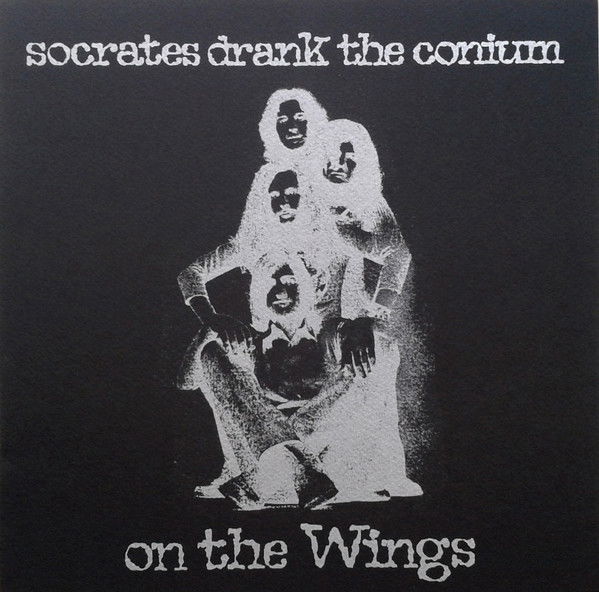
That year, the album was also released in the United States - a huge step for a Greek band. Wouldn’t you agree? And don’t forget, all these albums and concerts (including shows abroad!) happened during the Greek military junta (1967–1974). That’s an incredible feat. Huge respect to this band. Check out THIS explosive performance by Socrates in 1973 at Agios Kosmas, just before they left for England. The audience was hungry for rock back then! A stunning document from a very tough era-harsh, difficult years.
Their peak came in 1976 with the release of ''Phos'', a collaboration with the legendary Vangelis Papathanassiou (Vangelis). It was their most different and perhaps their most mature album. ''Phos'' was a unique fusion of psychedelic rock, Greek melodies, and progressive elements. An international-level album and an international-level production. The album even got a U.S. release with a different cover. A truly high-level work.
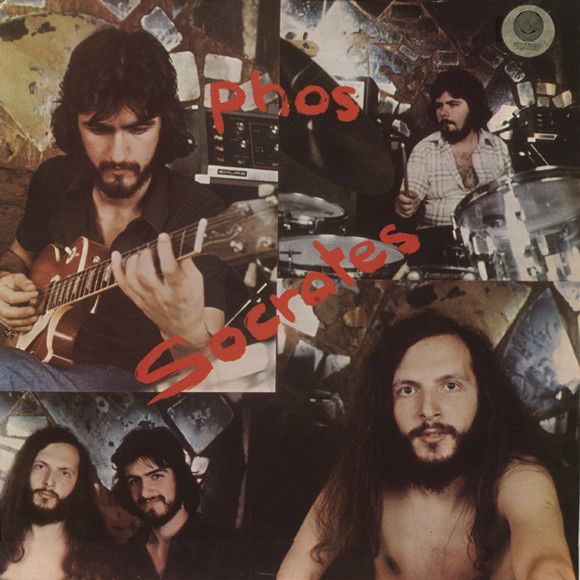
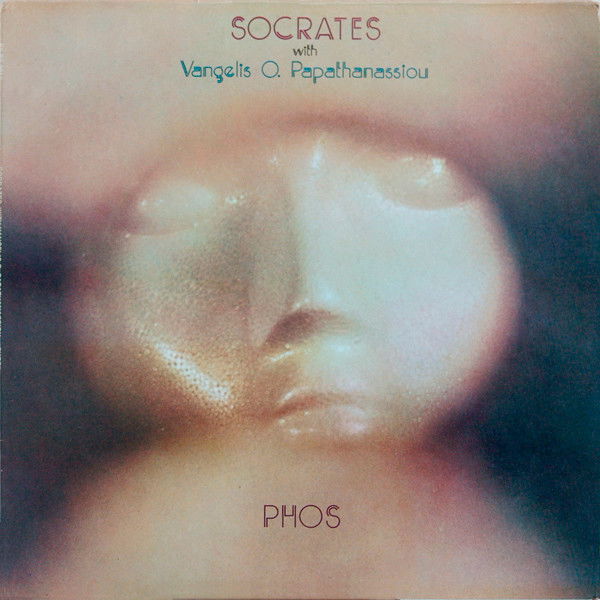
After the mid-’70s, the band went through multiple lineup changes and experimented with more modern styles. ''Waiting for Something'' (1980) was a pleasant surprise. A very different sound - more mature, with jazz and blues influences. The band played with confidence, not trying to impress, just expressing themselves. One of their most atmospheric and “calm” albums, less revolutionary but deeply expressive.
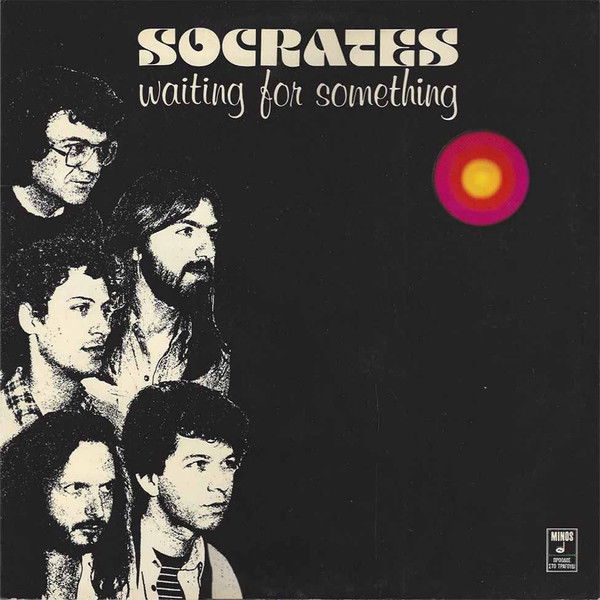
''Breaking Through'' (1981) followed. Here, the band sounded fully mature, technically excellent and full of fresh ideas. The rock foundation remained, but there were more grooves and experimentation. The songwriting was solid and professional. A very well-balanced and enjoyable album.
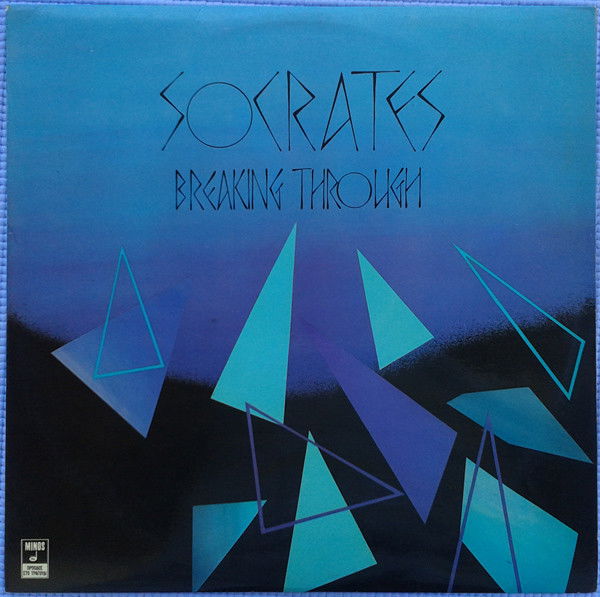
Then came ''Plaza'' (1983), one of their lesser-known records. A quieter, less explosive album compared to their early days, but not without charm. It shows their effort to follow more commercial or mellow directions, adapting to the times with a radio-friendly sound and new wave influences. It didn’t reach the popularity of their earlier works. As I mentioned in the beginning, I didn’t like this album at first, but now I can confidently say it’s one of my favorites by Socrates. Some albums require you to be ready to listen to and truly understand them. Back then, I wasn’t...but now, I am... hahaha!
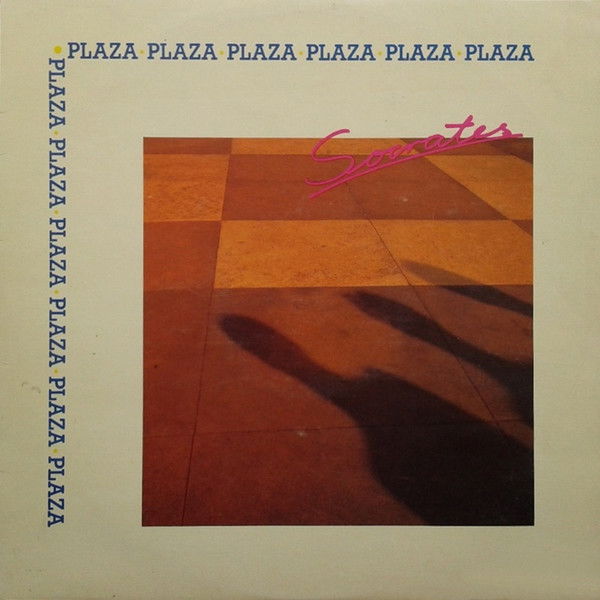
After that, the band gradually reduced their activity and eventually disbanded in the late ’80s.But Socrates didn’t stay silent forever. In the late ’90s, they reunited and performed live, with fans welcoming them back enthusiastically. They even released the live album ''Live in Concert ’99'', recorded at Lycabettus Theatre. Of course, I was there, watching from the rocks above the venue… for free, of course… hahaha! There were efforts to record new material in the early 2010s, but those were halted due to health issues.
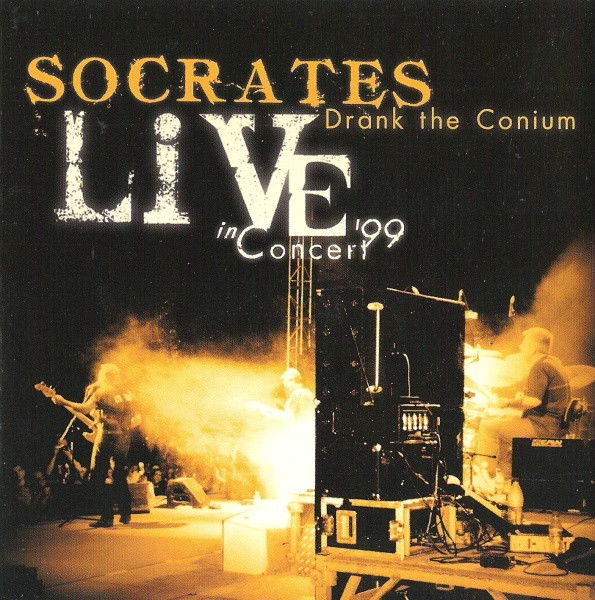
In 2023, they released ''Last Forever'', a kind of swan song featuring unreleased material. Issued in a limited edition, the album stands as a touching farewell. It’s emotional because it keeps the spirit of the band alive. It’s not technically perfect, but it has heart, it speaks with feeling. It sounds like a message from the past, a final return to something we once loved.
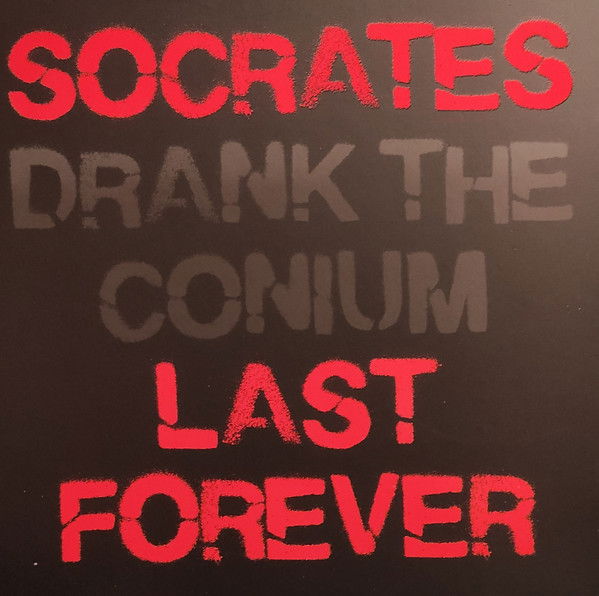
Yannis Spathas passed away in 2019, Nikos Antypas in 2022, and Antonis Tourkogiorgis in 2024, leaving behind a huge void, but also a rich legacy. The band left an indelible mark on the Greek music scene. They were among the few who combined technical mastery, artistic identity, and international sensibility. They influenced countless musicians and continue to inspire - mainly through the passion, quality, and independence that defined their work.
By Steve the Filthy Dog


